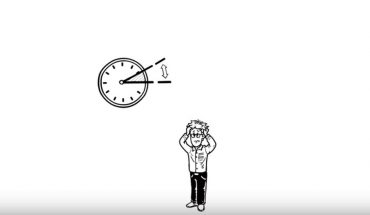Perspectus Global and Comms Agency DAPS have collaborated on a newly released White Paper, reflecting on menopause in the workplace in 2023, observing midlife women from different cultures, the benefits they bring to an organisation and the challenges they face.
The White Paper includes comments from a range of experts, as well as brand new research, surveying women of Britain and their employers.
The research found that:
- 19 percent of people (a quarter of men and 12 percent of women) admit that they have no knowledge at all about menopause
- 21 percent of men and one in 10 women even have no idea when women might start menopause.
- One in five of all 18-to-24-year-olds are unaware of what the symptoms of menopause might be.
- 61 percent of women over 45 agree that “menopausal” is often used in an insulting or pejorative manner.
- Nearly half (49 percent) of women aged 45 and over would not feel comfortable talking to a line manager about menopausal symptoms.
The study found that only 37 percent of managers have been offered training around menopause – this results in some unacceptable responses from bosses. When these managers were confronted with people who told them they were suffering menopause symptoms, 27 percent admitted they were shocked, a quarter didn’t know what to do, 16 percent thought they were being lied to, 9 percent thought the complainant was making a fuss about nothing and 8 percent ignored them. 47 percent of women said they did not feel supported during their menopause.
Some expert insights below:
Nina Kuypers, Founder of Black Women in Menopause: ” Recognising the intersectionality of menopause and race/ethnicity contributes to building an inclusive workplace. Challenges for Black women in menopause in the workplace are multifactorial from gender, race, and age to identify a few. These challenges can manifest in various ways for example:
Lack of Representation: Black women may often find themselves in workplaces with limited representation, both in terms of gender and race. This lack of representation can make it more challenging to have their specific needs and experiences acknowledged and addressed.
Stigma and Stereotypes: Black women, like many women, may face stigma and stereotypes related to menopause. This can include misconceptions about their abilities, emotional stability, or productivity during this life stage.
Cultural Factors: The experience of menopause and attitudes towards it can vary among different cultural and ethnic groups. Some Black women may have unique cultural beliefs and practices related to menopause that influence their experience.
Economic Disparities: Black women may be more likely to work in low-wage jobs without access to comprehensive healthcare benefits or the flexibility needed to manage menopause symptoms.
Microaggressions and Discrimination: Black women may encounter bias and prejudice in the workplace, which can exacerbate stress and negatively impact their mental and emotional well-being.
Work-Life Balance: Balancing work responsibilities with managing menopause symptoms can be challenging. Fatigue, hot flashes, and other symptoms may affect productivity and well-being if workplaces do not offer flexible work arrangements.
Communication Barriers: Effective communication about menopause needs and challenges may be impeded by a lack of understanding or open dialogue in the workplace.
Dr Rachel Taylor, Neuroscientist: ” If we are serious about making a difference to those who are going through menopause, we have to accept that there is no one menopause. Each woman experiences her menopause with her own individual challenges. Each woman experiences her menopause with her own individual challenges. There may be socially acceptable symptoms, or unique symptoms, either way, she should be supported so that she feels empowered and valued, able to use all the wisdom, experience and skills that she has accumulated throughout her life. “
Claire Lowson, Founder of Supermenopause: ” Our society sexualises women when they are still girls and discards them at their most powerful. With an ageing population, poor female representation at board level, and a gaping hole in the workforce, this is as financially ludicrous as it is sexist and ageist.”
Pat Duckworth, Founder of Smarter Menopause: ” Menopause is not an illness, it’s a natural phase of a woman’s life.”
Emma Freivogel, Founder, Radical Recruit: “Menopause doesn’t discriminate, but the workplace often does. For menopausal women navigating intersecting disadvantages, such as race, disability, or gender identity, the challenges can be especially daunting. When unsupportive employers are thrown into the mix, the world of work becomes nearly impossible to navigate. To champion inclusivity, employers should take proactive steps by adopting an intersectional approach, addressing the unique challenges faced by women with multiple minoritised identities, revising their policies with a focus on women’s needs, ensuring culturally competent support is readily available within their organisations, and providing education to raise awareness of the challenges that their menopausal colleagues encounter.”
While women have some protection for their menopause from the Equalities Act 2010, which means that discrimination on grounds of sex, disability or age is illegal, making menopause a protected characteristic, alongside others such as pregnancy, would be a big step forward.
Please do read the White Paper in full here: Pause for Thought: Reflecting on the Menopause in the Workplace
- Gut microbiome could delay onset of type 1 diabetes - 3rd April 2025
- The da Vinci 5 Robot Is Set To Transform Bariatric Care: - 31st March 2025
- Beyond money: the hidden drivers fuelling child food insecurity - 31st March 2025






